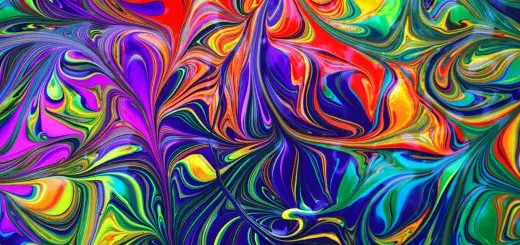Wu Wei in Taoist Healing: Restoring Balance

Looking for more amazing products? Check out our online store and explore our collection here! Happy shopping!
Before diving in, please note: This post is for informational purposes only. If you’d like to know more about how we approach topics, feel free to check out our friendly Disclaimer Page.
Hey there, amazing readers! 
We’re committed to delivering quality posts, and your support (even just sticking around despite the ads) means everything to us. So, bear with us, and thanks for helping us keep the good vibes rolling. Now, on to the fun stuff!
TRANSLATE BUTTON AT THE END OF THE ARTICLE
A Quick Overview
In Taoist philosophy, Wu Wei is a concept that emphasizes the importance of effortless action, going with the flow, and living in harmony with nature.
This principle is not only applicable to daily life but also plays a significant role in Taoist healing practices.
By understanding and embodying Wu Wei, individuals can restore balance and promote healing on physical, emotional, and spiritual levels.
This article will delve into the concept of Wu Wei in Taoist healing, exploring how it can be applied to restore harmony and cultivate holistic wellness.
Introduction to Wu Wei in Taoist Healing
Wu Wei, often translated as "non-action" or "effortless action," is a central tenet in Taoist philosophy.
It encourages individuals to align themselves with the natural rhythms of the universe, rather than resisting or forcing outcomes.
In Taoist healing, Wu Wei is seen as a fundamental principle for restoring balance and promoting health.
By letting go of excessive effort and allowing things to unfold naturally, practitioners can tap into the inherent wisdom of the body and facilitate the healing process.
Understanding the Concept of Balance in Taoism
Balance is a key concept in Taoism, where the interplay of Yin and Yang energies is believed to influence all aspects of life.
In Taoist healing, balance is seen as essential for maintaining health and well-being.
When the body, mind, and spirit are in harmony, energy can flow freely, and ailments are less likely to arise.
By cultivating balance through practices like Wu Wei, individuals can support the body’s innate ability to heal itself and prevent imbalances from occurring.
The Role of Wu Wei in Restoring Harmony
Wu Wei plays a crucial role in restoring harmony within the body and mind.
By letting go of attachment to outcomes and surrendering to the natural flow of life, individuals can release tension, stress, and resistance that can disrupt the body’s natural healing mechanisms.
Through Wu Wei, practitioners can cultivate a sense of inner peace, acceptance, and trust in the process of healing, allowing for a deeper level of restoration and transformation to take place.
Applying Wu Wei in Traditional Chinese Medicine
In Traditional Chinese Medicine (TCM), the principles of Wu Wei are deeply ingrained in the diagnostic and treatment approaches.
Practitioners of TCM often emphasize the importance of working in harmony with the body’s natural rhythms, rather than imposing external interventions.
By applying Wu Wei in TCM practices such as acupuncture, herbal medicine, and qigong, practitioners can support the body’s ability to return to a state of balance and harmony, facilitating the healing process.
Techniques for Cultivating Wu Wei in Healing
There are various techniques that individuals can use to cultivate Wu Wei in their healing journey.
These may include mindfulness practices, meditation, breathwork, Qi Gong, Tai Chi, and other mind-body exercises that promote relaxation, presence, and awareness.
By incorporating these practices into their daily routine, individuals can develop a deeper connection to their own internal wisdom, tap into the healing power of nature, and align themselves with the flow of life.
Finding Inner Peace through Wu Wei Practice
By embracing the principle of Wu Wei, individuals can find a sense of inner peace and tranquility that extends beyond physical healing.
When individuals learn to let go of attachment to outcomes and trust in the natural unfolding of life, they can experience a profound sense of freedom, acceptance, and connection to the world around them.
Through Wu Wei practice, individuals can cultivate a state of calmness, clarity, and presence that supports their overall well-being and fosters a deeper sense of inner harmony.
The Importance of Mindfulness in Taoist Healing
Mindfulness is a key component of Wu Wei practice in Taoist healing.
By cultivating awareness of the present moment and paying attention to the body, mind, and spirit, individuals can develop a deeper understanding of their internal processes and patterns.
Mindfulness allows individuals to observe their thoughts, emotions, and sensations without judgment, creating space for healing and transformation to occur.
By integrating mindfulness into their daily lives, individuals can enhance their ability to embody the principles of Wu Wei and promote holistic wellness.
Incorporating Wu Wei in Daily Life for Health
Incorporating Wu Wei into daily life can have profound effects on overall health and well-being.
By cultivating a mindset of non-attachment, acceptance, and surrender to the natural flow of life, individuals can reduce stress, anxiety, and tension that can contribute to illness and disease.
Through simple practices such as mindful breathing, conscious movement, and gratitude exercises, individuals can align themselves with the principles of Wu Wei and promote healing on all levels of their being.
Balancing Yin and Yang Energy with Wu Wei
In Taoist healing, the concept of Yin and Yang energies plays a crucial role in maintaining balance and harmony within the body.
Yin represents the feminine, receptive, and nurturing aspects, while Yang represents the masculine, active, and expressive qualities.
By practicing Wu Wei, individuals can harmonize these opposing forces and create a state of equilibrium that supports health and vitality.
By embracing the interplay of Yin and Yang energies through Wu Wei practice, individuals can cultivate a sense of wholeness, unity, and balance within themselves.
Wu Wei and the Five Elements in Healing
In Taoist cosmology, the Five Elements (Wood, Fire, Earth, Metal, Water) are symbolic representations of the natural cycles and energies that govern the universe.
Each element corresponds to specific organs, emotions, seasons, and qualities that influence health and well-being.
By applying the principles of Wu Wei in conjunction with the Five Elements, individuals can support the body’s natural healing processes, address imbalances, and promote overall health.
By aligning with the elemental energies through Wu Wei practice, individuals can tap into the wisdom of nature and cultivate a deeper connection to the healing forces that surround them.
Case Studies: Wu Wei Success Stories in Healing
There are numerous case studies and testimonials that demonstrate the effectiveness of Wu Wei in promoting healing and well-being.
From individuals experiencing chronic pain and illness to those seeking emotional balance and spiritual growth, Wu Wei has been shown to support a wide range of healing outcomes.
By surrendering to the natural flow of life, letting go of resistance, and embracing the principles of Wu Wei, individuals have reported profound shifts in their health, vitality, and overall quality of life.
These success stories serve as a testament to the power of Wu Wei in promoting holistic wellness and restoring balance on all levels.
Conclusion: Embracing Wu Wei for Holistic Wellness
In conclusion, Wu Wei is a powerful concept in Taoist healing that emphasizes the importance of effortless action, alignment with nature, and balance within the body, mind, and spirit.
By embracing Wu Wei, individuals can cultivate a state of inner peace, harmony, and well-being that supports their overall health and vitality.
Through practices such as mindfulness, meditation, Qi Gong, and Tai Chi, individuals can tap into the healing power of Wu Wei and promote holistic wellness on all levels of their being.
By incorporating the principles of Wu Wei into daily life, individuals can restore balance, cultivate harmony, and embark on a journey towards greater health, happiness, and fulfillment.

The Enlightenment Journey is a remarkable collection of writings authored by a distinguished group of experts in the fields of spirituality, new age, and esoteric knowledge.
This anthology features a diverse assembly of well-experienced authors who bring their profound insights and credible perspectives to the forefront.
Each contributor possesses a wealth of knowledge and wisdom, making them authorities in their respective domains.
Together, they offer readers a transformative journey into the realms of spiritual growth, self-discovery, and esoteric enlightenment.
The Enlightenment Journey is a testament to the collective expertise of these luminaries, providing readers with a rich tapestry of ideas and information to illuminate their spiritual path.
Our Diverse Expertise
While our primary focus is on spirituality and esotericism, we are equally passionate about exploring a wide range of other topics and niches 

To ensure we provide the most accurate and valuable insights, we collaborate with trusted experts in their respective domains 
Our blog originally focused on spirituality and metaphysics, but we’ve since expanded to cover a wide range of niches. Don’t worry—we continue to publish a lot of articles on spirituality! Frequently visit our blog to explore our diverse content and stay tuned for more insightful reads.
Hey there, amazing reader! 
Check out our store here and take a peek at some of our featured products below! Thanks for being awesome!










